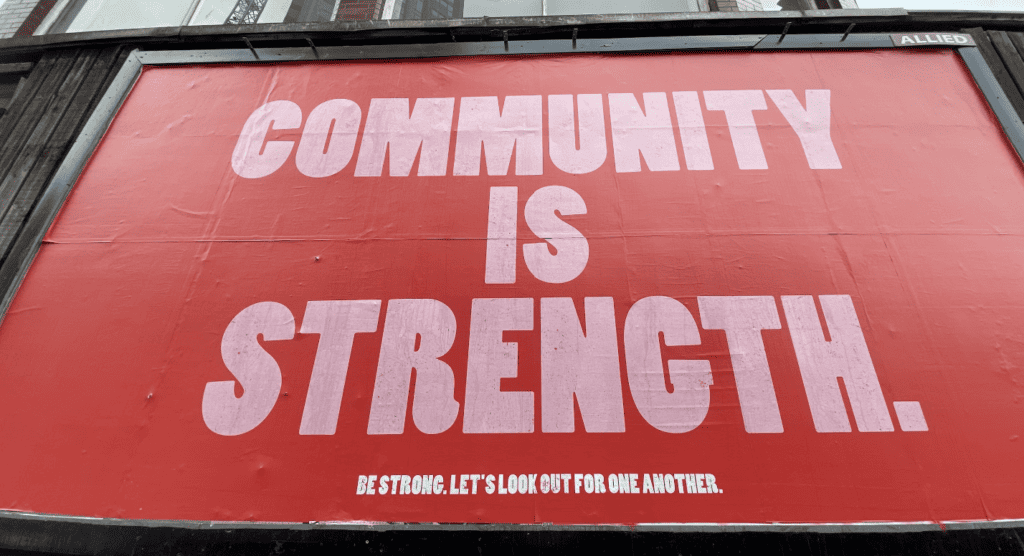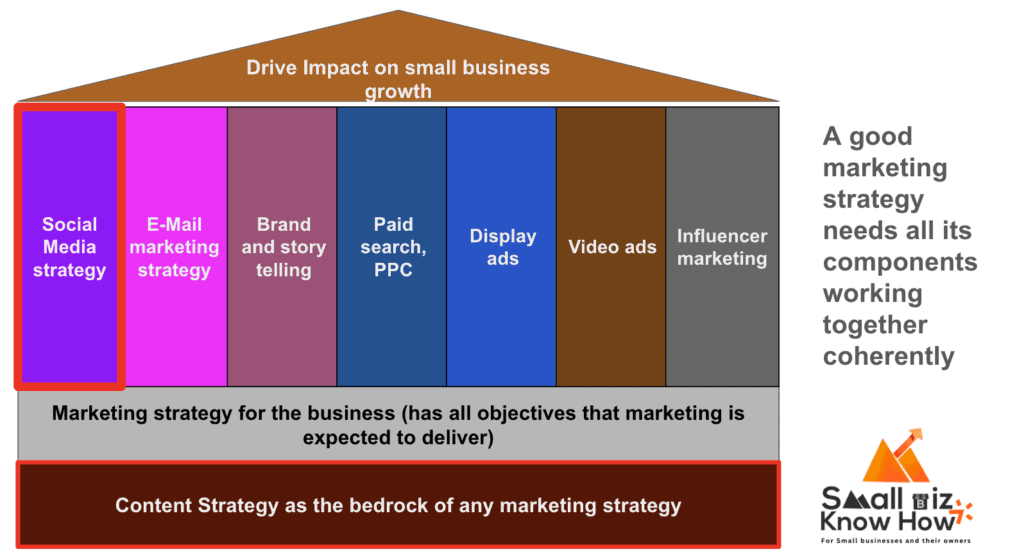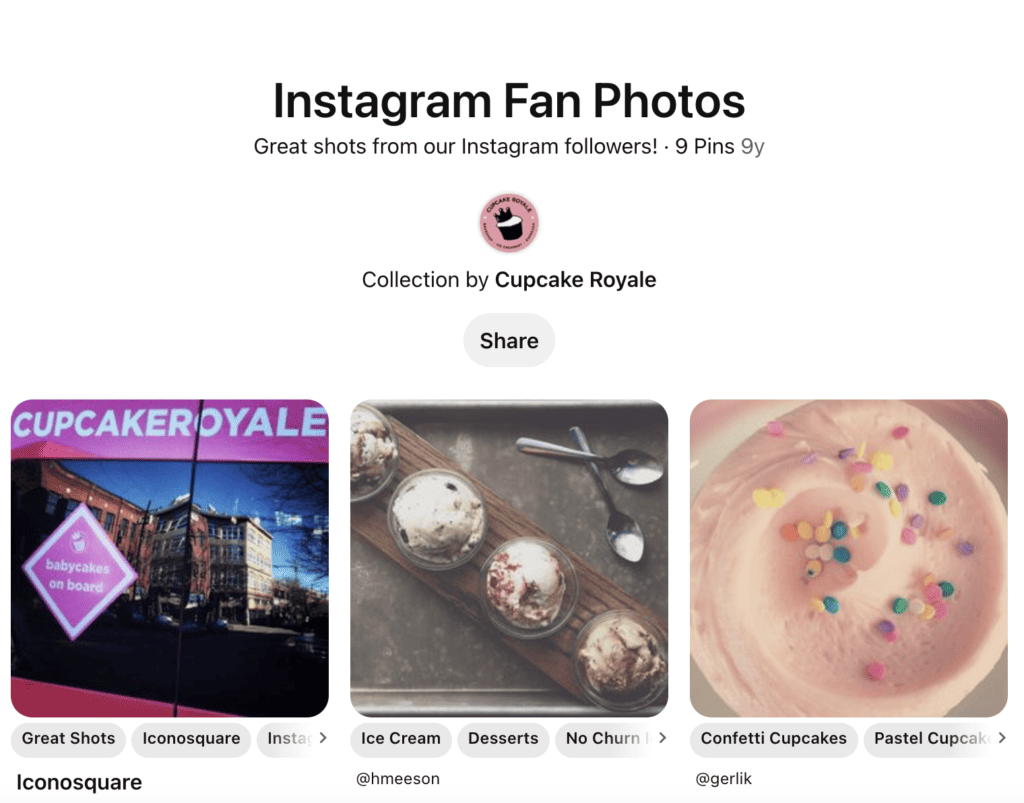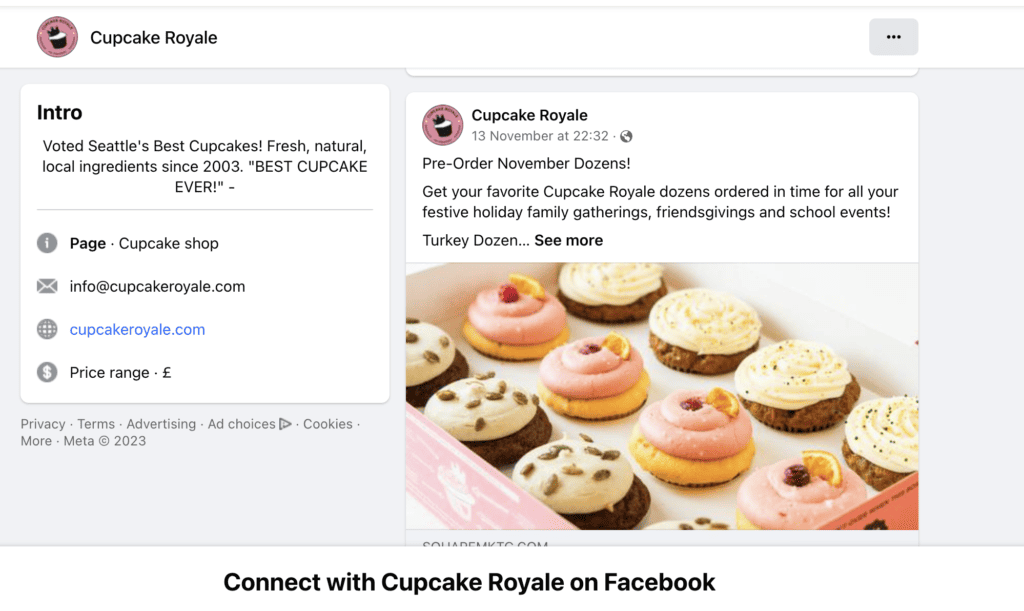I have been working for more than the past decade with small business owners to help them solve their challenges in business growth. When the talk about digital marketing strategy for small businesses comes up with small business owners, the only points of discussion are google ads, facebook ads and other forms of paid advertisement online. Social media marketing has taken a pseudonym for digital marketing among many small business owners.
I have seen a lot of small business owners get disappointed with results after they spend a lot of money on advertising to get customers on social media.

The solution to this problem is to use social media the way its intended to be used. Any social media (or social network) like facebook, twitter or instagram is designed to bring people and conversations closer. Its meant to create a network.
Facebook, instagram both started as a digital space for people to connect with each other and share life updates. When corporates started entering social media channels to promote themselves, the concept of social media marketing began to emerge. If you treat social media like a network and not like lead generation engine, you are much more likely to have success in your business objectives.
This shift in mindset will also dictate how your resources are deployed on social media and your expectations from social media will also change.
Does social media really benefit business growth?
There are people on both sides of the fence to this question. If we were to reframe this as “does social media help in increase business revenue directly?”, the answer that I will give you is a straight “NO” based on my experience.
Social media is not meant to drive revenue for your business. What it is meant to do is to give you an outlet to discover your audience and as a means for your audience to discover you. There are very few businesses who have successfully managed to grow their revenues from social media advertising.
The main reason why social media does not really have that much of an advantage when it comes to improving revenue for small businesses is due to the following factors

Saturation of ads on social media
Everyone who can spend money for ads, have bombarded all social media platforms with advertisements. In a very distracted world today with limited attention spans, this saturation makes it very difficult for ads to grab customer attention.
Overlap of target audience
The broad target audience that many social media platforms provide make the same audience overlap for almost all companies, resulting in the overcrowding. Many social media channels also do not provide granular demographic segments due to privacy concerns and with multiple government regulations coming in.
Changing algorithms by social media platforms
Very often we see active social media users complain about a certain platform removing some features. These along with frequent changes in algorithms by the platforms make it necessary to keep track of so many changes. So will a small business owner keep track of these trends or actually run their business?
Rapid changes in trends
We see a lot of superficial trends which change by season on social media. Predicting or keeping up with these trends is best left people who are closely linked to social media marketing. Its not the forte for many small business owners to capitalise on these trends.
Going through the above points i have listed, one may feel that one should not bother with any social media platform. That’s not the case. There is always a benefit to being authentic and giving out useful content on any platform, be it in content marketing or in social media marketing.
What can a small business learn from the current state of social media?

There are many insights that small businesses can learn from the current landscape of social media usage and changes in trends and practices. These insights can reveal the best possible avenues for small businesses to use social media platforms that have a much better RoI rather than spending on ads to generate leads on any social media platform.
Importance of authentic engagement on social media
All users on social media increasingly value authenticity and genuine interaction with businesses. Small businesses should focus on building real connections with their audience, engaging in meaningful conversations, providing useful information and fostering a community around their brand.
Most social media companies today spend their time and resources to ensure that their monthly active user count is always increasing. Thats the only way in which companies will spend money on social platforms in the name of digital marketing.
Small businesses should make use of this to their advantage. As more users keep coming back to a social platform, a business should look to engage with their audience without the intention to sell them something. Think of it as building a brand equity with your audience. Build awareness, give useful information and make the interaction with your audience enriching and genuine rather than a marketing effort.
A lot of progress being made on trust and protecting user privacy in social platforms
Over the past few years, we have seen a massive push from all quarters to protect the privacy and online behaviours of users on various social platforms. What this means is that there will be restrictions on how social media platforms will be able to target audience for advertisers.
This goes back to how many social media platforms can only give a generic target audience which has a significant overlap across multiple sectors and products. This will make it difficult to personalise and customise your advertisements to the target users. It will also become more difficult to learn more granular information about their interests and preferences.
Emergence and dominance of video content
Thanks to tik-tok and the younger generation coming on to all social media platforms, the consumption of really short form video content as sky rocketed. From a small business perspective, if you are in a niche that has to do with a lot of design, creativity and visually appealing products for your customers, this may be a blessing that you can capitalise upon.
If you are a small business who can make videos from your day to day life without much of an investment, you can use social platforms to engage with your potential customers. Since all actives users on social media value authenticity, an un-edited video of you and your business will do wonders for keeping your audience engaged.
Use of social media for crisis management and handling customer complaints
Increasingly, customers choose to reach out to businesses over social platforms to seek redressal for their issues. This is because users can expect an instant response with complaints while posting on facebook and twitter.
As a small business, being proactive to customers on social media is the biggest creator of goodwill for your brand. Addressing customer issues in public, dealing with criticism and praise openly builds tremendous amount of trust with existing as well as potential audience on social platforms.
Businesses that acknowledge their faults and make good on them will see customers moving towards them over time.
Preference for native content within social platforms to keep users from leaving
There are increasing instances where social media platforms reduce the reach of posts that have links to external pages or websites outside the social platform. The algorithms make sure that users of the social platform spend as much time as possible within their ecosystem and its in their interest to minimise people leaving.
So if you as a business, expect that you can put in some posts on social media, that can potentially drive traffic to your own website, its going to be increasingly difficult today. It may have been possible before 2020 to do that, but in the past few years, many small businesses and website owners are unable to rely on traffic boosts from social platforms.
That begs the question, can the most popular social media platforms actually drive business growth for a small business?
Do facebook and instagram drive effective business growth for a small business?

Both facebook and instagram put-together have more than half the planet’s population on these platforms, but do they really help in growing your business effectively?
A Social platform should be used by small businesses to grow an audience and engage with that audience. Now if we look at growing an audience through social media marketing, there are few elements to
- Who are your target audience
- Which social media platforms are your target audience present in
- What kind of content does your target audience like to consume
- How much of an effort is it to produce the content
- What frequency should you publish your content
So if a business is targeting folks who are over the age of 45, the best platform to find a target audience is facebook. If your target audience are of a younger age but present predominantly in south and south east asia, then too, facebook is a great social media platform to serve you such an audience.
If your target audience are folks, aged around 25 and living in the western part of the world like the US and EU, instagram is a better option. Even if you want to target women, instagram would be a better channel than facebook for your business.
When it comes to the kind of content that people consume in both social platforms, the main form of content that is consumed in instagram are visually appealing photos and shorter videos or reels. However, in facebook, the kind of content is a mixed bag with text, photo and videos finding good engagement with the audience.
The key here is to tap into the relevant audience with a consistent approach to sharing useful and informational content for the target audience. Once you have a schedule and you stick to that schedule, it takes a few months for it to build traction and the audience to build up.
Once an audience has been built on facebook and instgram, the small business needs to work to keep them engaged with useful information. This level of grind is needed for a small business to see any benefit from these social platforms.
Does facebook, instagram and other social media platforms solve for small business needs?

Lets look at the benefits that facebook and instagram can offer small businesses. We will also take a look at the limitations from these two social media platforms. Small business owners need to be cognizant of both these factors while looking at social media marketing campaigns and spending money on them.
Benefits of facebook and instagram being a part of social media marketing campaigns
- Community building and customer engagement (takes time to make it happen)
- Targeted communication once a community is built
- A variety of content can be used to keep audience engaged
Some of the challenges (outweighs benefits) of taking on social media marketing are
- Constant algorithm changes, you really need to be an expert marketeer
- Social platforms don’t prefer to divert traffic away outside the platform, hence such content with external links dont get as much reach
- Social platforms are increasingly under pressure to make money, hence they will prioritise users who pay for their services
- Saturation of ads and content on social media will need a small business to bring out something extra creative or intriguing to get attention
- Resource intensive – small businesses must dedicate bandwidth and time to constantly push content out to retain audience engagement
What social media platforms are best for a company to do business to business marketing?
If you are a small business and your customers are other businesses, then your approach to social media would be different. You’r target audience are professionals working in other companies. LinkedIn and X (formerly twitter) would be the only relevant sources to identify and connect with potential customers.
There are multiple ways in which small businesses can develop a LinkedIn strategy, but the essence of it boils down to publishing informational and useful content on a regular basis.
Some paid tools on linkedIn like sales navigator may be useful to get contact information of the right people in your target businesses. Connecting with potential customers via in-mail on linkedIn is also seen as professional and an acceptable way to do cold-out reach.
What social media platforms are small businesses really spending money on?

Most small businesses spend money on advertising on facebook and instgram. The advertisement revenue from US and canada on facebook was approximately $54 billion, of this about 60% of the revenue ($33 billion) came from small businesses. 80% of the small businesses in the US are on facebook, and about 65% of them (17 million small businesses) spend money on advertisements on facebook and instagram.
What this means is that a small business on average in the US spends approximately $2000 per year on social media advertising. This translates to at least $200 per month as spends on social media platforms like facebook and instagram for small businesses.
Now, $200 per month is a mathematical average and may not seem like much for a small business to be spent on advertising, the question, is that enough to drive any impact to business growth for the small business?
Business owners that i have spoken to have told me that they spend upwards of $2000 per month on facebook alone. A small business can buy about 10,000 likes on facebook for that kind of money for a post, but it just remains as ‘likes’. You get great reactions, shares, comments and all of that, but it does not immediately translate to any revenue increase.
How much should a small business pay for social media?
The answer to this question really depends on the stage of growth that you as a small business are in. If you are selling a product or service that directly influences the lifestyle choice of a person, you must be present on facebook and instagram.
If your business can afford to spend money to the tune of $500 or more per month, i would recommend that you spend that money on creating good quality content that adds value to your target audience. Do it frequently, consistently and for a long period of time.
This will build an organic audience, who will immediately consume content that you share and can become fans of your business over time. Once you build that kind of positive advocacy on a social media platform, you have achieved your objective of starting out social media marketing.
Remember, social media marketing does not directly give you benefits to your business revenue or profit, but it helps keep your target audience engaged, builds your brand and improves awareness. It plays an important role in building awareness and consideration in the minds of your target audience about your business.
What should a business really want from social media?

A small business should really look at building an organically acquired audience over the long term on social media. Social platforms should also be one of the main channels to address customer issues and solve customer problems.
Social media platforms and social media marketing should not be looked at as the sliver bullet to grow your business and increase sales
A small business social media marketing strategy should look like below, it also addresses some questions that small business owners seem to ask
“How to promote your business on social media for free?”
The process is the same, follow the below rules..
- Create good content
- Share content on social media
- Grow an audience with content
- Publish more intriguing content as your audience grows
- Get your audience to engage with your content
- Publish more content
- Get audience to engage
- Publish more content
- Get your audience to engage
- …
You get the drill. It should be a repeatable process, repeated day in and day out.
A good base for any successful social media marketing strategy is a well thought out content marketing strategy for a small business.
Once a small business has a good content plan as a part of their digital marketing strategy, social media marketing will fit in perfectly and it will give you the desired results for your business with respect to building awareness and engagement with your audience.
How can a small business drive traffic to their website from facebook?
I indicated above that due to the preference for native content on social media platforms, posts with links to external web pages (pages outside facebook or instgram) dont get as much reach and audience engagement as pages that link within facebook.
All social media platforms want to keep their users within their platform.
So no matter how many likes and shares you get, from a business or sales perspective, it is useful only when you can convert all that engagement into clicks and traffic onto your own website.
I have learnt from some business owners that the best way to do it is to add the link to your website on your business page on facebook or on instagram. This strategy works maybe 40% to 50% of the time, but this is the probably the only way in which you can beat the algorithm to translate the engagement on your post into traffic on your website
Step 1: Start with sharing a piece of content from your website. When you paste the link, hopefully, an image that is on the webpage from your website gets pulled in as well.
Step 2: Remove the link from the facebook post and keep only the image
Step 3: Give the post a very serious and concerning question that worries your audience. The answer to that question should be a hint in the image from your website. The indication from the post should be that users should click the image to find out more
The photo below shows how facebook pulls the image automatically

The below photo shows how you remove the link and replace it with a text

I have just shown an illustration from M J Bauer Photography (credits to him), on how such an example would be.
The critical aspect here is the degree of emotional reaction you can get from your audience with the text you put in the post.
Do this only once you have built a reasonably large audience on facebook
Again, i would like to repeat that this works only in 40-50% of the cases, but there is really no other way you can get traffic to your website from facebook without sacrificing on the reach of your post.
Can you run a successful small business without social media?
Some business owners who are tired of spending money on social media platforms without the ROI ask me if they should just stop wasting time on social media. My only response to them is that they should continue to do the following two things as long as they have the badnwidth
- Use social media to support customers with their issues and address questions
- Be consistent when it comes to providing useful information to your audience
The above two are essential elements in any digital marketing strategy so I would urge small businesses to have the minimal presence needed to do the above on social media platforms.
What is the best way in which social media can be integrated into a digital marketing strategy?

Social media marketing is one of the pillars of the overall digital marketing strategy that works together with other strategies in driving positive business results for a small business.
The bedrock of any good social media strategy is a good content marketing strategy that any business needs to have.
Social media needs to deliver the positive customer engagement and building an audience metric that is crucial to a business looking to make progress with digital marketing. All the pieces need to work together for a business for the results to be greater than the sum of its parts.
Examples of small businesses using social media really well for business growth
A great example of a small business that effectively utilised social media for free and built a substantial audience is “Cupcake Royale,” a small bakery and cafe chain based in Seattle, Washington. Here’s how they leveraged social media:
Background
Cupcake Royale started as a small cupcake bakery. The business initially had limited marketing funds, necessitating creative, low-cost marketing strategies.
Social Media Strategy

Platform Choice: They primarily used platforms like Instagram and Facebook, which were ideal for showcasing their visually appealing cupcakes and café ambience.
Content Creation: Cupcake Royale focused on creating engaging content:
Visual Appeal: They posted high-quality images of their cupcakes, often incorporating seasonal themes, behind-the-scenes looks, and new flavors.

Engagement: They interacted with their followers by responding to comments, featuring customer-generated content, and conducting polls about new flavors.
Community Building: The business created a sense of community by:
Local Engagement: Highlighting local ingredients and collaborations with other local businesses.
Customer Stories: Sharing customer experiences and stories, making their audience feel part of their journey.

Brand Personality: Their social media presence had a consistent tone and style that aligned with their brand – fun, friendly, and community-focused.
Consistency: Regular posting ensured that they stayed on top of their audience’s minds.
Promotions and Events: They used social media to promote special offers, events, and new product launches, encouraging followers to visit their stores.
Outcome
- Increased Brand Awareness: Their social media presence significantly boosted their brand visibility not just locally, but also among tourists visiting Seattle.
- Community Engagement: They fostered a loyal community of customers who not only frequented their stores but also actively engaged with them online.
- Business Growth: This increased visibility and community engagement contributed to their growth, allowing them to open multiple locations.
Key Takeaway

Cupcake Royale’s success story illustrates that with the right content and social media marketing strategy, small businesses can effectively use social media to build a strong brand presence and loyal customer base without a large marketing budget. Their focus on high-quality visual content, community engagement, and consistency were key to their success.
An example of introducing a new business on social media
There is the example of a small business into indoor plants known as “The little plant shop”. Check out thier instgram reels and posts to understand how they made wonderful teasers about their business and launched it with great engagement with their audience.
All it takes is a little bit of creativity and fearless execution and small business owners have both in abundance!
